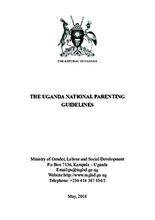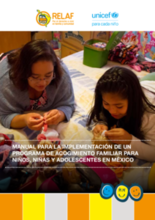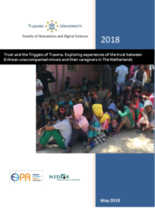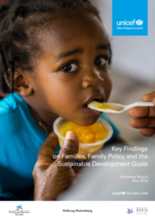Demographic Data:
|
Sources: World Bank, UNDP, DHS 2010-11 |
Displaying 7871 - 7880 of 14348
This video features interviews and presentations from a seminar that took place in Nairobi, Kenya in March 2018 which brought together orphanage directors to discuss the importance of children growing up in safe and loving families and the need to transition models of care.
This chapter from Migration between Africa and Europe investigates family life in the context of international migration between Ghana and Europe. The chapter finds that transnational family forms, in which one or more members of the nuclear family are living abroad while the other members remain in the home or another country, are common.
The current service-data study explored the emotional and behavioural symptom trajectories of 207 young people under the long-term care of a local authority in the South West of England, over their first five years in the care system.
The current service-data study explored the emotional and behavioural symptom trajectories of 207 young people under the long-term care of a local authority in the South West of England, over their first five years in the care system.
This video from Mtoto News features interviews with several experts in the field of children's care and protection who discuss the importance of deinstitutionalization, particularly in the Eastern and Southern Africa context, and efforts being made to reduce or end the institutionalization of children.
These Guidelines are for all persons taking care of children. The goal of these Guidelines is to empower parents, the family and community structures to effectively nurture children so that they can realise their full potential.
Este Manual desarrolla de manera genérica el marco conceptual y los diferentes procesos que constituyen un programa de un programa de acogimiento familiar para niños, niñas y adolescentes, de forma que resulta aplicable y adaptable a todos los contextos legales-políticos-institucionales que conviven en México.
This report focuses on trust relations of Eritrean minors who arrived without the company of their parents to The Netherlands and the people who are taking care of them.
As part of the "Children Come First: Intervention at the border" project, Save the Children Italy elaborates and disseminates, on a quarterly basis, a dossier containing quantitative and qualitative information (profiles) relating to migrant minors entering Italy. This dossier contains information relating to the first quarter of 2018.
This synthesis report, ‘Families, Family Policy and the Sustainable Development Goals (SDGs): Key Findings’ explores how the role of families, and family policies from around the world, can contribute to meeting the SDG targets.





